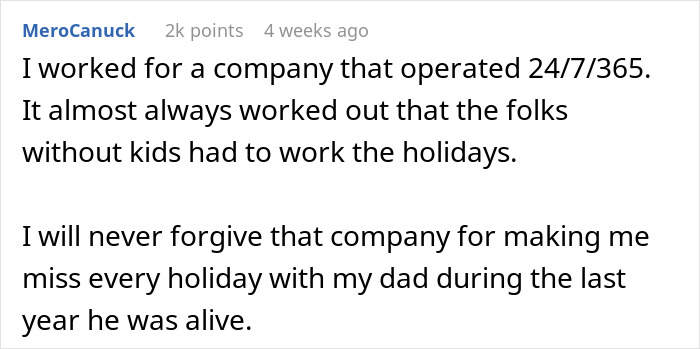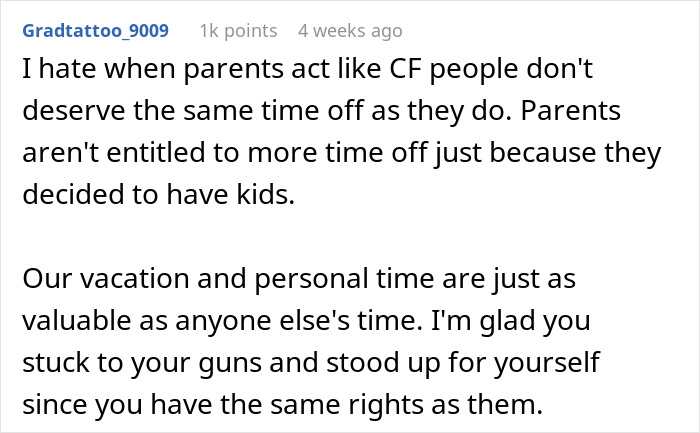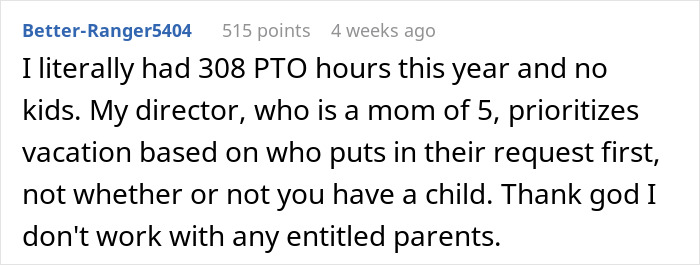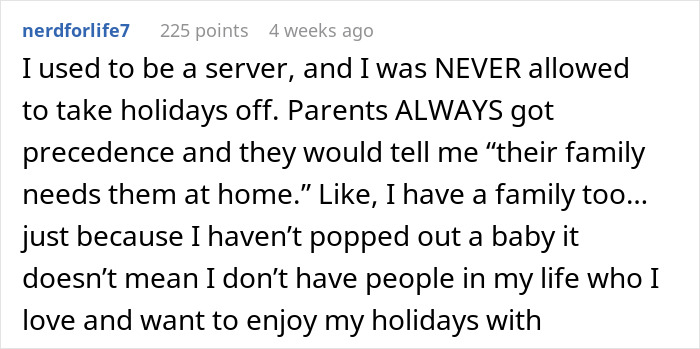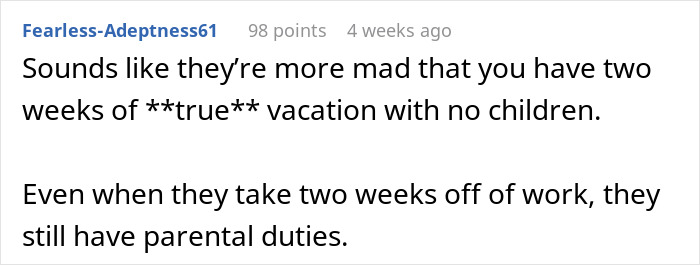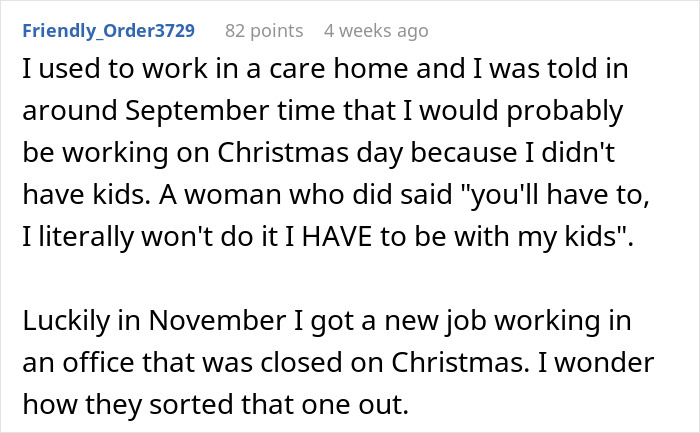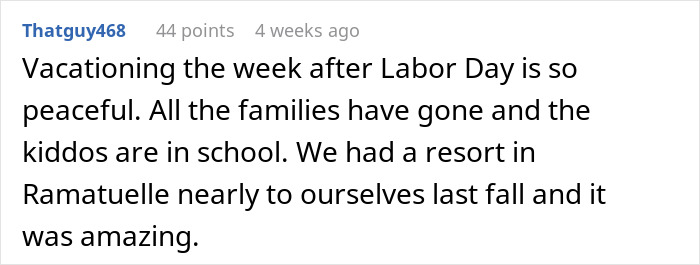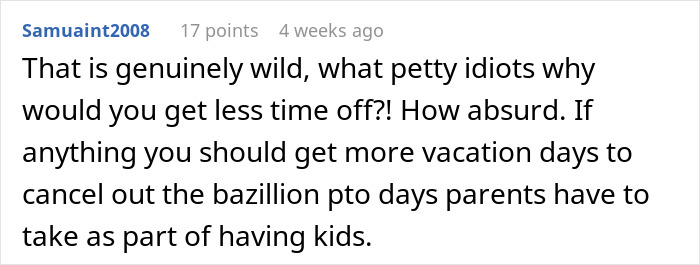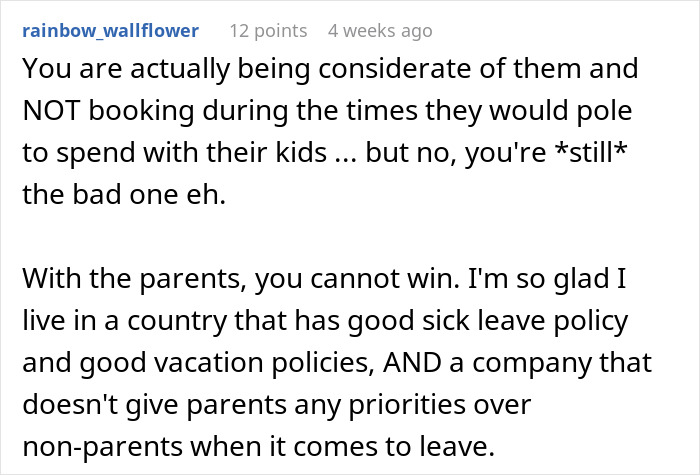Conflicts with a coworker are never a good idea. You deal with this person daily, and the last thing you need is to disrupt the office environment with awkwardness and tension you could cut with a knife.
This employee got into a rift with multiple colleagues over a valuable corporate perk: annual leave allowances. He says many workmates have complained about him having “too much time off,” but his schedule for his vacation likely gave a wrong impression.
The author says his peers grew upset but believes they are being a bit too self-absorbed. Read his entire rant below, which he shared in the Childfree subreddit.
It’s never a good idea to be in conflict with someone like a coworker whom you deal with regularly

Image credits: Annie Spratt / unsplash (not the actual photo)
This employee got into a rift with his colleagues because of their annual leave allowances

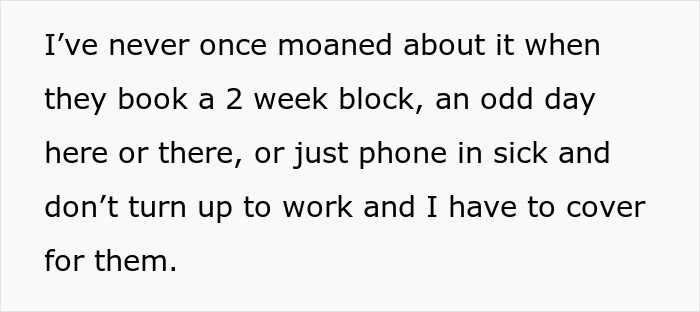
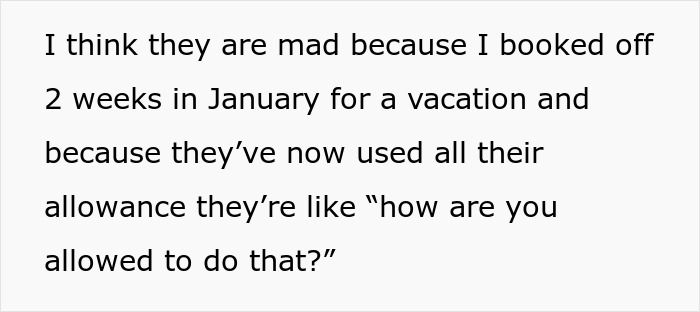

Image credits: Maddi Bazzocco / unsplash (not the actual photo)
The author believes his peers were being too self-absorbed


Image credits: bobcat734
Workplace conflicts are more costly than what’s likely perceived
The author’s rift with his colleagues may seem menial and repairable, which could very much be the case. However, such conflicts carry hefty and costly repercussions.
According to statistics by Pollack Peacebuilding Systems, US-based employees spend around 2.1 hours per week in conflict with a coworker. It amounts to roughly $359 billion in paid hours focused on disputes instead of productivity.
HR staff also have their work cut out for them, as 51% of their workforce spends up to five hours weekly resolving these issues. However, their intervention still leads to 18% of employees leaving the company because of the ongoing office drama.
It also doesn’t help that workplaces have a high prevalence of conflict, with 85% of workers admitting they’ve had some form of bad blood with a colleague.
But what are the usual causes? One is the lack of clarity about accountability, linked to 21% of employee clashes. The author is part of this statistic as his peers feel he may be abusing an employee perk and getting away with it.
According to employee engagement agency ROI, the scarcity of resources is also one of the four reasons for office disputes. The other three are poor communication, a clash of personalities and values, and a lack of clarity on roles and responsibilities.
“When companies lack sufficient resources for employees to do their jobs, pressure to compete for those resources can arise, leaving some team members feeling set up for failure,” an excerpt from an article by ROI reads.
There are three entities in a conflict, and that’s where the focus should lie
Based on his story, the author got into a “me vs. them” situation with his colleagues. According to workplace expert Amy Gallo, people commonly overlook a third entity: the dynamic between the conflicting parties.
Gallo says this third entity could be as specific as an assignment where you compete with each other or when faced with an important decision. It could also be an ongoing tension, which the author seems to be experiencing.
“Rather than work to change your colleague, try to make progress on that third thing,” Gallo wrote in an article for Forbes.
Disputes also cause people to be biased against the person they’re at odds with. In the story, the employee already perceived his colleagues negatively when there appeared to be a misunderstanding of the timing of his vacation schedule.
Gallo suggests playing devil’s advocate by questioning your interpretation of what’s happening in such cases. If that doesn’t work, ask someone you trust to give you an honest take on the situation.
Letting go of the idea that everyone is against him could help the author find an inner resolution to his workplace drama. From there, he could work on letting go of his negative perceptions and allow himself to see the misunderstanding as a whole.
But if all else fails and things get disruptive, he could escalate the matter to his manager or HR.
What’s your take, readers? Does the author have a case here? Or did he misunderstand and judge the situation too quickly?
Commenters shared their reactions and similar experiences
